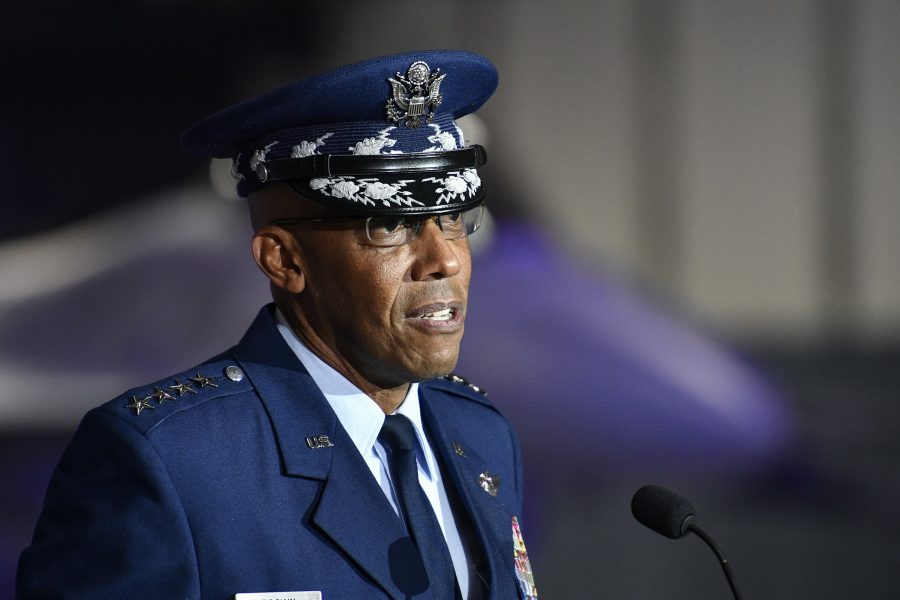As Gen. Charles Q. Brown Jr. took over as the service’s top uniformed leader, he directed his inner circle to address urgent issues with, at times, imperfect information and to provide direct, unvarnished advice to move the service forward.
The guidance to the Air Staff, issued Aug. 6, provides a glimpse of the direct leadership style of the 22nd Chief of Staff as the service prepares for a high-end fight, with specific mentions of the growing threat from China and the “generational” opportunity to restructure that comes along with the creation of the Space Force.
“We must make enterprise-wide and clear-eyed judgments about our strategic future as an Air Force and how we enable all Airmen to reach their full potential, quickly adapt to changes in the geopolitical environment, and succeed in a high-end fight,” Brown wrote. “The future will pose far more challenging scenarios than those to which we have become accustomed. We must change now—so that we are prepared when the nation next calls upon our Airmen to fly, fight, and win.”
In the memo, Brown writes that his staff can expect him to stick by the four tenets he has followed in his career, which he outlined at the Aug. 6 change of command ceremony:
- Execute at a high standard
- Be disciplined in execution
- Pay attention to details
- Have fun.
Brown said as he leads, he will work to be transparent to “articulate the why and my intent for the how.”
“My personal credibility, my professional credibility, and the credibility of our Air Force are extremely important to me,” he wrote. “As such, I will continually assess myself and our Air Force for continuous improvement.”
In turn, Brown holds his staff to high standards. He writes that Air Staff Directors need to be experts in their areas of responsibility, providing timely and informed options. The staff will have to make “consequential decisions with imperfect information,” with risk articulated and mitigated. The staff needs to precisely diagnose problems, with a bottom line provided up front. Leaders need to flatten communication, share knowledge with their own staff, and collaborate with personnel at all levels.
“The Air Staff is nothing without the Airmen—uniformed, civilian, contractors—you are privileged to lead,” he wrote. “They deserve to work in an environment that fosters diversity, inclusion, and belonging, and I expect you to mentor, coach, and enable all to reach their full potential.”
To make effective change, the whole Air Force needs to buy in on what problems have to be solved. The moment is right to act, Brown said.
“We must leverage the momentum resident in our rapidly changing world to accelerate the types of changes we have long been interested in making, but have been unable to make due to systemic inertia or the need to address more immediate concerns,” he wrote. “Confronting long-term challenges under conditions of deep uncertainty is a daunting task, but not impossible.”
Brown wrote he is personally responsible for articulating why changes are needed, and for directing how to move forward to “address the significant challenges facing our Air Force.” He calls on the Air Staff to answer with urgency on how to address challenges, and provide professional yet “unvarnished” advice.
“We must never lose sight of the fact that our success will ultimately be determined by our ability to arm our Airmen with the tools they need to succeed in the high-end fight,” he wrote.
